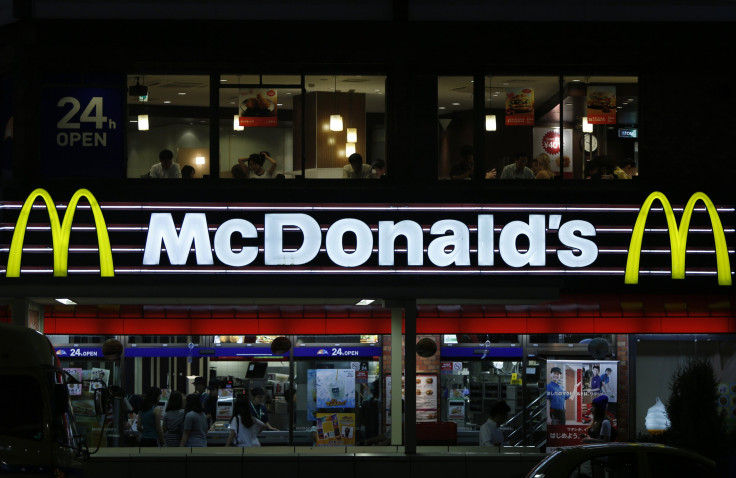McDonald's CEO Acknowledges Image Problems After Tough Results

(Reuters) - McDonald's Corp (MCD.N) Chief Executive Officer Don Thompson owned up to some corporate image problems on Tuesday after it posted a nearly one-third drop in quarterly profit and warned that its global restaurant sales would fall again this month.
Stock in the fast-food chain, which Thompson conceded is sometimes seen as little more than "a manufacturing plant," was down 0.6 percent at $91 in afternoon trading after reporting a 30 percent fall in third-quarter net income to $1.07 billion and traffic declines in every major region.
Thompson, who has been CEO for just over two years of his 25-year career at McDonald's, said the company that now serves some 70 million customers a day worldwide has at various times during its history faced questions about whether it is still relevant to consumers, who are now craving more fresh, unprocessed food.
"McDonald's is in the business of satisfying customers and that will never fall out of favor. The question is what do you do to do that?" Thompson asked Reuters in a telephone interview.
McDonald's has posted a string of disappointing results, due to uncontrollable factors and internal missteps, since Thompson took the helm in July 2012.
Wall Street analysts, many of whom underscore McDonald's deliberate business style, predict that the company will give Thompson at least a year to move the needle.
To that end, Thompson said McDonald's is simplifying menus, tailoring food to local tastes, offering custom burger and sandwich options, rolling out mobile services such as payments and ordering, and opening a social media "dialogue" with customers.
Technology has made customized ordering simpler and will give McDonald's the opportunity to showcase its fresh produce and other ingredients, Thompson said.
Last week, McDonald's launched a U.S. online campaign called "Our food. Your questions." and invited consumers to ask anything about its food. It opened the campaign by directly addressing food-quality rumors with questions such as: "Is 'pink slime' in a Chicken McNugget?" "Why doesn't your food rot?" "Are there worms in your beef?"
Thus far, the response has been mixed.
Survey data from YouGov BrandIndex showed that the campaign, coupled with McDonald's recent Monopoly game promotion, appeared to temporarily lift quality perception and purchase consideration in the younger, sought-after Millennial demographic that favors the likes of Chipotle Mexican Grill (CMG.N).
Nevertheless, McDonald's key demographic of frequent fast-food eaters were largely unmoved by the campaigns, YouGov spokesman Drew Kerr said.
"When you've been around for multiple decades like McDonald's has, you can't change on a dime," said Janney Capital Markets analyst Mark Kalinowski.
When it comes to changing perception, Thompson acknowledged that the company has work to do.
"We've largely been viewed as a manufacturing plant. They haven't seen the food," said Thompson.
McDonald's quarterly results showed sales at restaurants open at least 13 months fell a steeper-than-expected 3.3 percent in the United States, where smaller and more nimble fast-food rivals as well as Chipotle, known for using pricier antibiotic-free meats and organic produce, are taking a bite out of McDonald's market share. Chipotle on Monday reported an eye-popping 19.8 percent gain in third-quarter, same-restaurant sales.
McDonald's Europe sales at established restaurants fell 1.4 percent, hurt by economic weakness in regional powerhouse Germany and dragged down by political upheaval in Ukraine and Russia, formerly a fast-growing market for McDonald's.
McDonald's Asia-Pacific, Middle East and Africa unit said same-restaurant sales tumbled 9.9 percent, after this summer's China supplier scandal pummeled sales around the region.
Executives said same-restaurant sales in China fell 22.7 percent during the latest quarter. They added that it could take six to nine months for the business to normalize in affected markets, including China, Japan and Hong Kong.
© Copyright Thomson Reuters 2024. All rights reserved.











